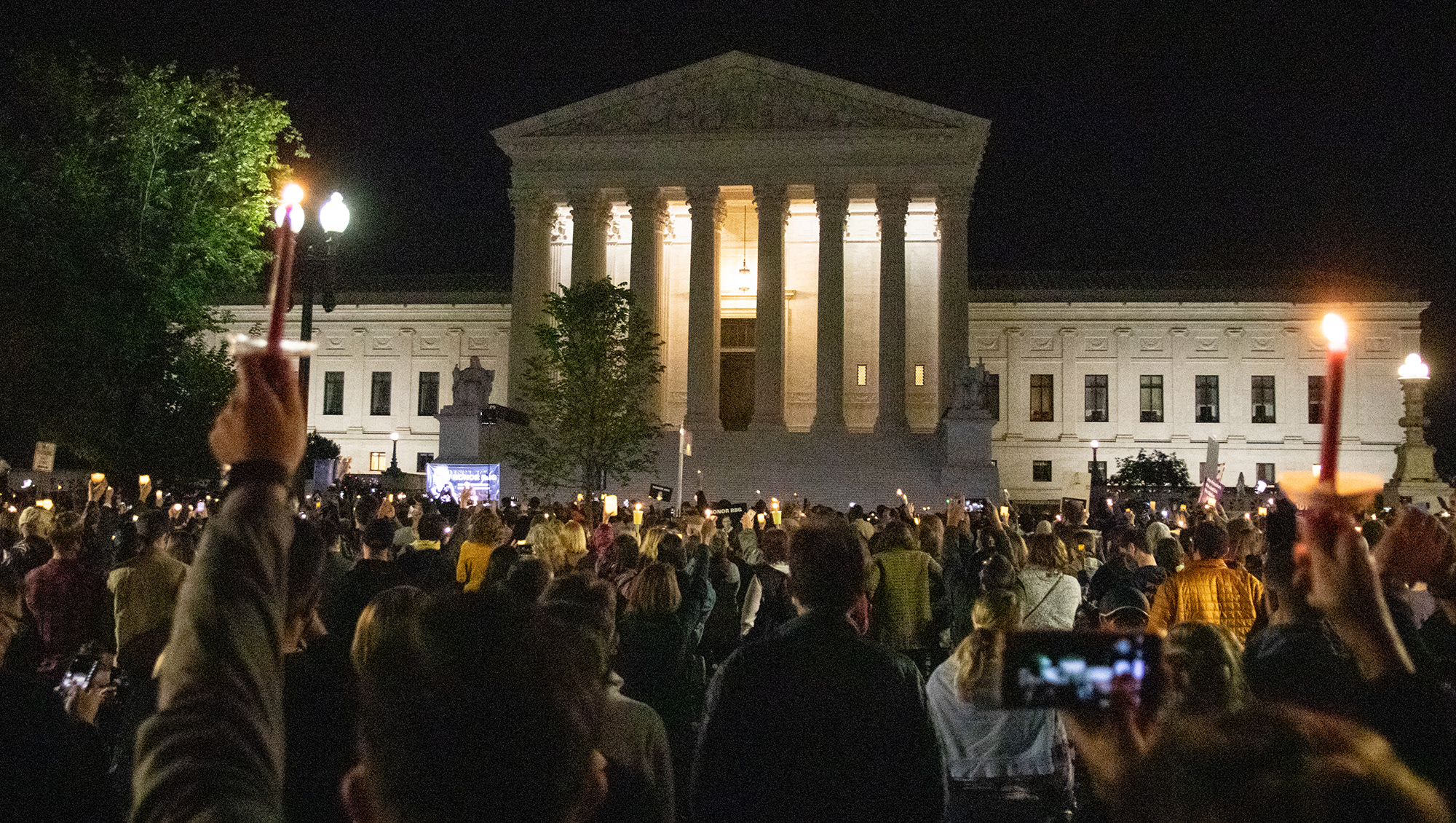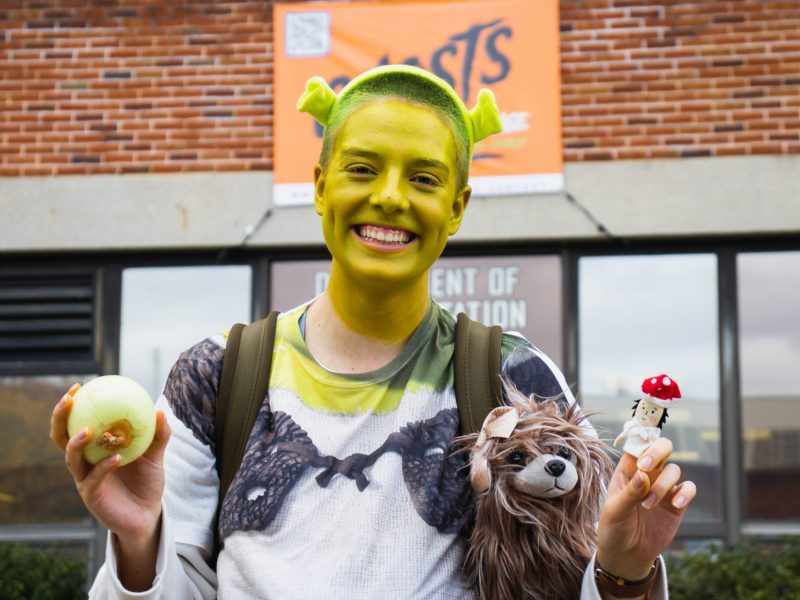As the sun set last Friday, I sat in my room planning to call my family before I said the prayers to bless the new year. It was the start of the year 5781 for the Jewish people and one of the holiest days on the Jewish calendar.
With my entire family celebrating from different places and not being able to come together as we usually do, this Rosh Hashanah was already going to look different. As I dialed my mom’s number, I saw an NPR news alert that shook me to my core.
“Supreme Court Justice Ruth Bader Ginsburg, a legal and cultural icon, dies at 87.”
A somber feeling settled around me. I sat down on my bed in shock and disbelief. I checked three different news sources — it was real. Sadness quickly turned into a selfish worry of what the next few months might look like following the devastating loss of an icon who championed gender equality, LGBTQ rights and reproductive rights.
“What are we going to do?” I asked my mom, who was in just as much shock as I was.
Instead of wishing each other a happy and sweet new year, we talked about all of the possible things that could happen if Ginsburg is replaced before November.
[Reflecting on Ruth Bader Ginsburg’s feminist legacy]
It took a day of processing and mourning to realize the weight of losing such a powerful Jewish woman on Rosh Hashanah. Jewish legend says that people who die on Rosh Hashanah are considered righteous, which is why they are granted eternal life that day.
“Those who die just before the Jewish new year are the ones God has held back until the last moment bc they were needed most & were the most righteous,” said Nina Totenberg, NPR’s legal affairs correspondent, in a tweet commemorating the loss of Ginsburg.
It would be an understatement to say Ginsburg was righteous. Ginsburg spent her entire career fighting for equality.
In the major 1996 case United States v. Virginia, for which Ginsburg wrote the majority opinion, the Supreme Court ruled that the Virginia Military Institute’s male-only admissions policy was a violation of the 14th Amendment’s equal protection clause.
Ginsburg also fought like hell for marriage equality in the historic 2015 Obergefell v. Hodges case, which legalized same-sex marriage in the U.S.
The 2016 case Whole Woman’s Health v. Hellerstedt illuminated Ginsburg’s commitment to protecting reproductive rights. This case would have put provisions on physicians providing abortions in Texas, but it was struck down in the Supreme Court. Ginsburg wrote that instead of making abortions safer, this law would have restricted women’s access to abortions.
This past Friday night, crowds of people flocked to the steps of the Supreme Court to honor Ginsburg’s memory. In recognition of Rosh Hashanah and Ginsburg’s Jewish identity, some people chanted the mourner’s kaddish, a prayer recited for the memory of the dead. A Washington Post tribute video also shows the crowd being led in Jewish songs often played during services and holidays.
[Amid pandemic, Rosh Hashanah looked different for many Jewish students this year]
Without Ginsburg’s dedication to fighting for equality and protecting women’s rights, it is frightening for some to think about the future and what could be lost without her. Even Ginsburg reportedly recognized this dilemma just days before her death.
“My most fervent wish is that I will not be replaced until a new president is installed,” she said in a statement to her granddaughter.
Even though these thoughts were creeping in and out of my mind throughout the weekend, I couldn’t help but think of the words Ginsburg kept in her chamber: “Justice, justice, thou shalt pursue.” These same famous words from the Old Testament hung on my walls during my childhood and its meaning was taught to me throughout my upbringing.
All we can do now to preserve Ginsburg’s memory is to pursue justice and continue fighting for equality and basic human rights, just as she did her whole life.



